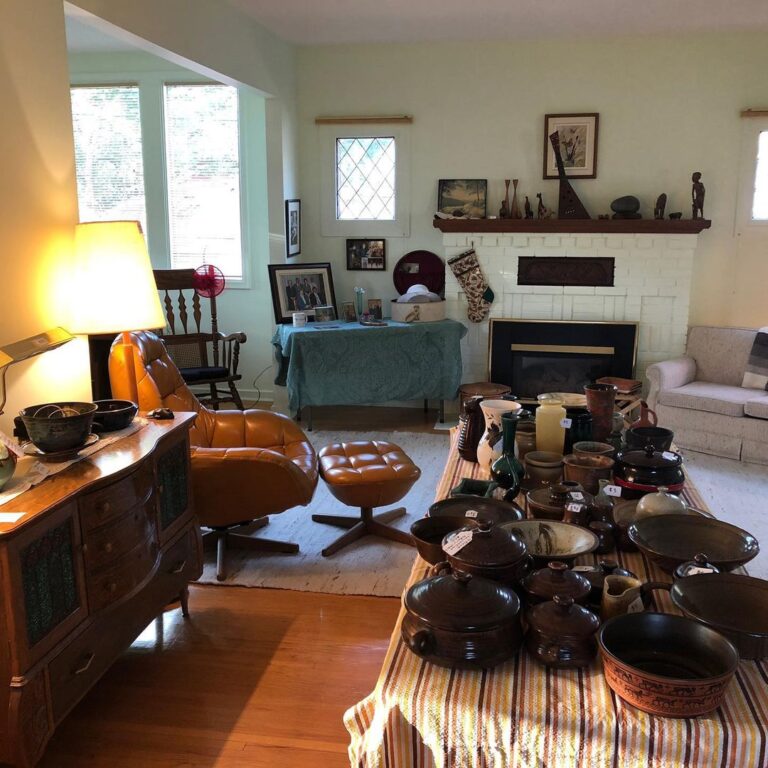When you’re trying to decide how best to handle the estate of a recently departed loved one, there are many things to things an executor has to consider, not least of which is how to liquidate their years of accumulated memories, mementos, and assets. Do you rally the family and friends and allow them to decide which keepsakes they’d like to have and then sell, donate, and dispose of the rest? And if you go that route, where do you sell a lifetime of treasures? Do you split it up and sell it through Kijiji, eBay, or Facebook Marketplace, have an estate sale, or try an online auction? Or do you maybe sell it altogether as one whole lot?
If you read our previous blog, entitled Tips for Hiring an Estate Services Company, you’ll know that we discussed how to go that route, so today, we’re going to talk about how to liquidate an estate if you choose to one of the other ways to do it.
Selling as a Lot vs Selling Piece by Piece
As the executor of the estate, you are personally and financially responsible for all of the assets within the estate.
There is a reason we often warn against selling an estate as a complete lot, and it’s because of your financial responsibility to the estate. If you were to sell the content as a complete lot for, say, $10,000, and it turns out that it’s actually worth a total of $750,000, you can (and likely will) be held financially responsible to the estate and the beneficiaries for the difference.
However, we also know that selling decades worth of memories piece by piece can be a long, arduous process as well. That’s why we tend to recommend the use of an estate services company that can help you with appraisals, donations, disposals, gifts to family members, estate sales, and even auctions.
Speaking of auctions…
Why Auctions are Better Than Online Marketplaces
It may seem easier (or cheaper) to sell your loved one’s possessions yourself via an online marketplace like Kijiji or Facebook Marketplace, or even through an online auction site such as eBay. The truth, however, is that it’s simply not.
Aside from the time it will take you to take pictures of each item, create listings, answer questions, ship items out in the case of online auction sites, or wait for pick up from buyers on marketplaces, it’s also highly likely that you won’t get proper pricing on your items this way. You can, of course, take the time and attempt to appraise items yourself through internet searches, but these are often unreliable and incredibly time-consuming.
If your loved one’s estate is small, and there are very few items that won’t be distributed among family and friends, then selling them yourself could potentially be cheaper than hiring a liquidating service, but if the estate contains more than just a few sentimental items, an estate services company will do all of the heavy lifting (literally!) for you, according the Hancom Federal Credit Union’s blog, Money Wisdom.
“They sort. They appraise. They price. They hold estate sales and/or auctions. They even donate leftover items to charity and make sure the property is “broom clean” before closing up shop. All you have to do is remove important papers and any items you don’t want to sell, and, of course, pay for the service.”
These liquidation firms will either connect you with an auction house through which they will sell the estate’s contents, or, as is in our case, they will handle all of the auction stuff right on their own live auction site, where they can connect your property with global network of high-paying buyers ready to pay top dollar for your loved one’s keepsakes. All the profit, none of the work.
Liquidating the Property Yourself
If, at the end of the day, you find yourself still wanting to liquidate the estate yourself rather than hiring an estate services company to do it for you, there are a couple of things you can do.
- Appraise, Appraise, Appraise.
We simply cannot express enough the importance of getting the estate contents appraised. If you’re going to splurge anywhere throughout this process, this would be the place to do it. That way, even if you’re planning on holding your own estate sale, auctioning of items on online sites, or selling on marketplaces, you’ll at least have a starting point for pricing the items.
- Don’t Toss Before You Appraise!
Jumping off the first point, it’s very important to not throw away or donate anything to charities until you’ve had everything appraised. Of course, things will be given to family and friends that were either Willed to them or were decided amongst the family that certain people should have certain items. That’s perfectly fine. But afterwards, there may be some leftover items that look worthless, however may end up being worth quite a bit. That’s why appraisals are necessary.
- Contact the Right People,
Perhaps your loved one was a collector of old books, or vintage toys, comic books, tea sets, clocks, etc. It can be a good idea to contact a local expert in the field of whatever it is they collected and have them come around and see if there is anything of worth – or if they, themselves, want to purchase it from you.
- Hold an Estate Sale.
Once the appraisal is done and experts have been contacted, you can now prepare yourself to hold an estate sale. Keep in mind, however, that estate sales are not like your average yard sale, so you may want to have an estate services professional or real estate agent on hand to help you out. We recommend holding an estate sale on the weekend for the largest amount of potential buyers.
- Hold a Yard Sale, Sell Online, and Speak to Consignment Shops.
For anything that doesn’t sell at your estate sale, you can proceed to the next steps. Yard sales are great for items of little value, or for items of higher value, you can visit consignment shops, or sell online via marketplaces or auction sites.
- Donate or Discard the Rest.
At the end of all of this, if there are still items left over that family or friends don’t wish to take, donating the excess to charity shops is a great way to help out others in need. For all else, discard it.
If you find yourself thrust into the role of executor (even if you knew it was coming), the best action plan is to try to emotionally detach yourself from the property and its contents, and then hire an estate services company to come in and do the hard work for you.
If you wish to go the DIY route, we hope these tips have helped give you a roadmap to how to do that. For more information about estate services and how they can help you during this incredibly difficult time, visit Sunrise Estate Services today.












